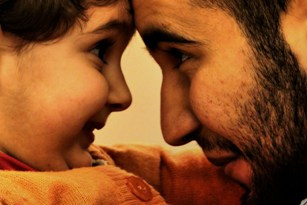Since Daniel Goleman popularized the term "emotional intelligence" (EI), studies have found that high EI is associated with lots of good things, including academic and occupational success, resistance to stress, and better relationships. But is EI something we can learn, or is it something we've got to be born with?
Cognitive scientist Delphine Nelis and colleagues recently tried to figure this out. In their study, published in Personality and Individual Differences, they divided roughly 40 college students into two groups. One attended four two-and-a-half hour training sessions over a four-week period in order to learn techniques for improving their emotional intelligence; the other didn't take the training.
The goal of these EI sessions was to increase the participants' skills in understanding, analyzing, expressing, and regulating their emotions. Each session included short lectures, role playing exercises, discussions, and readings. For example, in a role playing exercise, two participants pretended to be co-workers in the thick of a disagreement; after their interaction, the group discussed how well they handled the disagreement, then the participants ran through the exercise again to find more positive ways of expressing their emotions.
All participants were also given a diary in which they wrote about their daily emotional experiences. They then had to analyze these experiences in class in light of what they had been learning in the training.
The participants in both groups were tested before, directly after, and six months after the training to see if their emotional intelligence had improved.
Delphine and her colleagues found that members of the group that received the training showed a significant improvement in their ability to identify their feelings and the feelings of others, as well as to manage and control their emotions. What's more, these improvements were apparent not only right after the training but also six months later.
So while this study was a small pilot with a somewhat homogenous group of participants, the findings suggest that it is possible to increase emotional intelligence in the short and long term. "Overall, the results are promising," write the researchers, "as they suggest that, with a proper methodology relying on the latest scientific knowledge about emotion and emotional processing, some facets of EI can be enhanced, but not all."
 ©
© 



Comments
Child survive in this world only with emotions.We experienced emotion as we born, reasons came very late in our life.I think memory develop in child`s mind after the age of three.Before that he completely depend on emotions. Some are more emotional, some may less but emotions are base or our survival.Yes man can increase his emotions in some circumstances,Death of beloved, seeing some beautiful picture, there are hundred way man can increase his emotional faculty.
Ramesh Raghuvanshi | 9:34 am, October 30, 2009 | Link
Through my work with Project Happiness facilitating our social emotional curriculum, I have wonderful experiences with teens and young children. Can Emotional intelligence be taught? is not a relevant question. How can we foster emotional intelligence as a society is a more fitting question. Adults need to stop underestimating kids and teens (each other)…categorizing them so early on in their lives that their lives could be scheduled.
Rolando Sandor | 2:55 pm, November 4, 2009 | Link
I’m an adult in my 40s who is in the middle of a six-month training program in Dialactical Behavior Therapy. If I don’t believe that I am capable of learning Emotional Intelligence through methods like DBT and Mindfulness, then what choice do I have but to believe that I am doomed to another 40-plus years of disappointing relationships and aborted careers? It is not easy, but there were no programs for me when I was a child, so I am now forced to learn skills I should have learned 30 years ago. Better late than never, I say, and keep doing this important work. If more kids can learn Emotional Intelligence while they’re children maybe they won’t waste 20 years of their adulthoods.
Kristina | 9:27 pm, November 4, 2009 | Link
How successful are people at bike riding, swimming, skiing, or snowboarding when instead of getting formal instruction they just try to do what comes naturally? Perhaps they watch other people and decide for themselves what they should do. In most cases they fail miserably; however with proper instruction millions of people readily learn these popular skills. Too many of us are trying to live our lives, lead organizations, and even run the world, without instruction in the essential social skills of emotional competency. We can all benefit from skillful instruction.
——-
Leland R. Beaumont | 10:46 am, November 13, 2009 | Link
It is a wonderful work indeed if it can truly be effective in increasing “EI” which is the essence in capacitating individuals to solve complex problems for self , organisation and society at large. Most of the great psychological works prove that ‘EI” is mostly developed during the anal and the phalic state. Would be greatly enligtened to know more about the work process on such developmental workshop.
Regards
Soma Chakraborty
Soma Chakraborty | 8:48 am, July 29, 2011 | Link